Society Fellows
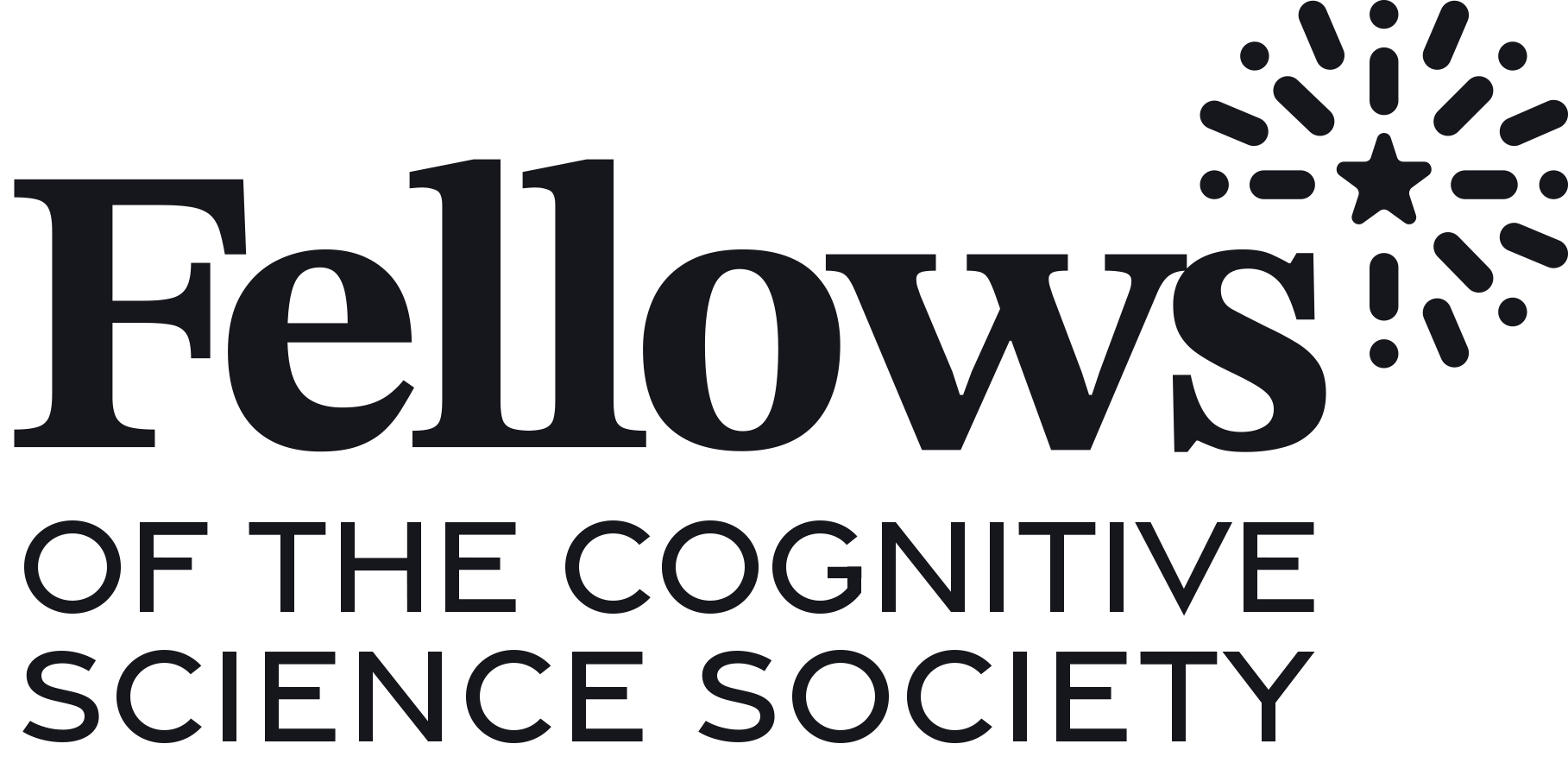
Fellows of the Cognitive Science Society are individuals whose research has exhibited sustained excellence and had sustained impact on the Cognitive Science community. A Fellow’s research is typically inter-disciplinary but may be disciplinary research with significant impact on Cognitive Science. Fellows often participate significantly in the Cognitive Science community but not necessarily. Fellows are recognized for their professional integrity. All other factors being equal, the Fellows election process attempts to balance diversity in gender, geographical region of the world, and intellectual area.
Selection Committee
Fellows of the Cognitive Science Society are elected by the Cognitive Science Society Governing Board. Following the open call for nominations, screening of nominees is performed by the Fellows Committee, consisting of members of the Governing Board and established Fellows of the Society. The committee recommends a list of fellows for final approval by the Governing Board.
Ercenur Ünal (Chair), Max Planck Institute for Psycholinguistics
Ned Block, New York University
Josep Call, University of St. Andrews
Nick Chater, Warwick Business School
Morten Christiansen, Cornell University
Stella Christie, Tsinghua University
Mutsumi Imai, Keio University
Tamar Kushnir, Duke University
Roger Levy, Massachusetts Institute of Technology
Chen Yu, University of Texas at Austin
Congratulations to the new fellows of 2026
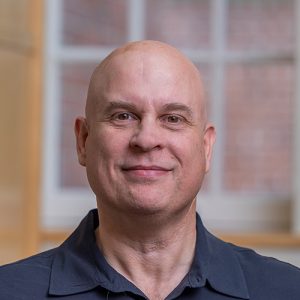
David Badre
Brown University
David Badre is Professor and Chair of Cognitive and Psychological Sciences at Brown University, where he is also on the faculty of the Carney Institute for Brain Science. He received his PhD from MIT and did his postdoctoral fellowship at UC Berkeley before joining Brown as faculty in 2008. Dr. Badre’s research focuses on the cognitive neuroscience of cognitive control. He has made several contributions to our understanding of the computational and neural mechanisms that underlie flexible and adaptive behavior. Dr. Badre’s research has been recognized by numerous awards. He is author of the book, On Task: How Our Brain Gets Things Done, on the neuroscience of cognitive control.
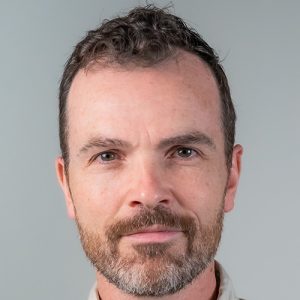
David Barner
University of California, San Diego
David Barner is a Canadian developmental psychologist whose work bridges questions in psychology and linguistics, with a focus on the origins of conceptual content in child development. Barner takes a cross-linguistic approach to understand how the structure of natural language impacts children’s acquisition of conceptual content in diverse domains, including color, number, time, and the representation of objects. His work also asks how linguistic structures impact logical reasoning, pragmatic inference, and our ability to reason about other people’s minds. Across a variety of cases, Barner argues that ostensibly lexical concepts like “exactly five”, “rabbit”, or “blue” are complex structures that are composed online through the interaction of syntactic, semantic, and pragmatic processes. Barner completed his undergraduate degree in Psychology with a Minor in Linguistics at McGill University in 1999 followed by a MSc in Communications Sciences and Disorders at McGill in 2001. In 2006 he completed a PhD in Psychology at Harvard University under the supervision of Jesse Snedeker and Susan Carey, before accepting a position as Canada Research Chair at the University of Toronto in 2006. Barner is currently Professor of Psychology at UC San Diego.
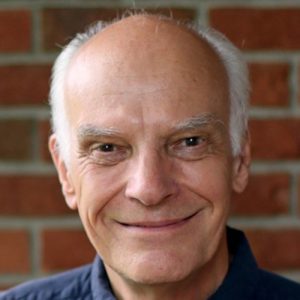
Nick C. Ellis
University of Michigan
Nick Ellis is Emeritus Professor of Psychology and Linguistics at the University of Michigan where he is also affiliated with the English Language Institute, the Center for the Study of Complex Systems, and the Weinberg Institute for Cognitive Science. He researches language and cognition, corpus linguistics, cognitive linguistics, applied linguistics, and psycholinguistics. He is well-known for his work in second language acquisition especially (1) explicit and implicit language learning and their interface, (2) usage-based acquisition and the probabilistic tuning of the system, (3) vocabulary, phraseology, and construction grammar, and (4) learned attention and language transfer. His emergentist research includes language as a complex adaptive system, networks analysis, scale-free linguistic distributions and robust learning, and computational modeling. He began in the UK with a BA in Psychology and Physiology from the University of Oxford and a PhD in the cognitive psychology of developmental dyslexia before joining the faculty of the University of Wales Bangor. He is a Fellow of the APS. He was awarded the Distinguished Scholarship and Service Award by the American Association of Applied Linguistics. He served as Editor then General Editor of Language Learning.
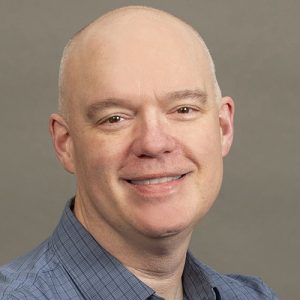
Matthew Goldrick
Northwestern University
Matthew Goldrick is Professor of Linguistics and, by courtesy, Psychology at Northwestern University, where he serves as Director of the Cognitive Science Program. He holds a BA, MA, and PhD in Cognitive Science from the Johns Hopkins University and was a postdoctoral fellow in the Department of Cognitive and Linguistic Sciences at Brown University. In close collaboration with linguists, psychologists, computer scientists, and cognitive neuroscientists, he has examined the implications of gradiently activated structured representations for cognition. Highlights of his work combining computational modeling, behavioral experiments, and acoustic phonetic analysis include: how multilingual speech and language processing is impacted by the gradient co-activation of representations across languages; the impact of graded representations and processes on acquired speech and language impairments; and the nature of the cognitive mechanisms that support structured computation with gradiently activated representations. Through teaching, administrative roles at Northwestern, and work with the Cognitive Science Society, he has helped enhance infrastructure supporting cognitive science in higher education. As a founding member of Reviewer Zero, he has worked to help reimagine scientific peer review to support a more diverse and inclusive cognitive science.
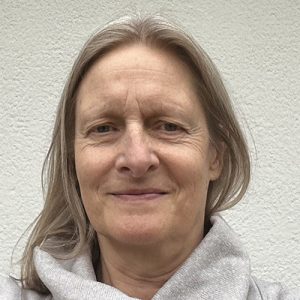
Ulrike Hahn
Birkbeck College, University of London
Ulrike Hahn is a professor at the Department of Psychological Sciences at Birkbeck College, University of London, where she also serves as director of the Centre for Cognition, Computation and Modelling. Ulrike Hahn’s research interests have covered categorization, similarity, language and language acquisition, and, first and foremost, questions of human rationality. Here, here research examines human judgment, decision-making, and the rationality of everyday argument. She is presently particularly interested in the way our beliefs are shaped by virtue of being parts of larger communicative social networks. Ulrike Hahn has been a member of the Senior Editorial Board of Topics in Cognitive Science, an Action Editor for Cognitive Psychyshology, for Psychonomic Bulletin & Review, and Psychological Science. She was awarded the Cognitive Section Prize by the British Psychological Society, the Kerstin Hesselgren Professorship by the Swedish Research Council, and the Anneliese Maier Research Award by the Alexander von Humboldt Foundation. She is a fellow of the German National Academy of Science (Leopoldina), a fellow of the APS, and holds an honorary doctorate from Lund University, Sweden
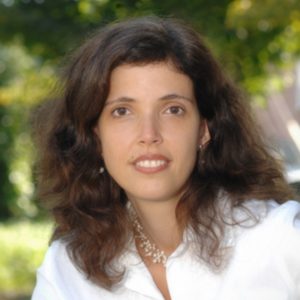
Anna Papafragou
University of Pennsylvania
Anna Papafragou is a Professor in the Department of Linguistics at the University of Pennsylvania, and the Associate Director for Research at Penn’s MindCORE Center for Outreach, Research and Education. She also serves as the Director of Penn’s interdisciplinary Graduate Certificate Program in Language and Communication Sciences. Her research interests focus on how children acquire meaning in language, how language is used and understood, and how language interfaces with human perception and cognition. She received her Ph.D. in Linguistics from University College London and was a postdoctoral researcher at the University of California at Berkeley and the University of Pennsylvania. Her work has been supported by multiple grants from the National Institutes of Health and the National Science Foundation. She has served as President of the Cognitive Science Society, a member of the CSS Governing Board and the Chair of the 2016 Annual CSS Meeting in Philadelphia. She has co-founded the Experiments in Linguistic Meaning (ELM) conference hosted biennially at Penn since 2020. She is currently Associate Editor for Cognition and Language Learning and Development, and has co-edited the Oxford Handbook of the Mental Lexicon.
ESTABLISHED FELLOWS
Martha Alibali
Gerry Altmann
John R. Anderson
Richard Aslin
Rita Astuti
Scott Atran
Renée Baillargeon
Dana Ballard
David Badre
David Barner
Lawrence W. Barsalou
William Bechtel
Andrea Bender
Brent Berlin
Maurice Bloch
Ned Block
Kay Bock
Matthew Botvinick
Pascal Boyer
John Bransford
Susan Brennan
Joan Bresnan
Sarah Brown-Schmidt
Joan Bybee
Jerome Busemeyer
Josep Call
Alfonso Caramazza
Susan Carey
Nick Chater
Micheline Chi
Noam Chomsky
Morten Christiansen
Patricia Churchland
Eve Clark
Herbert Clark
Jonathan Cohen
Bernard Comrie
Gary Cottrell
Seana Coulson
William Croft
Francesco d’Errico
Antonio Damasio
Stanislas Dehaene
Gary S. Dell
Daniel C. Dennett
Chris Eliasmith
Nick C. Ellis
Martha Farah
Janet Fodor
Kenneth Forbus
Peter Gardenfors
Rochel Gelman
Susan Gelman
Dedre Gentner
Edward Gibson
Raymond Gibbs
Gerd Gigerenzer
Yolanda Gil
Ashok Goel
Adele E. Goldberg
Susan Goldin-Meadow
Robert Goldstone
Roberta Golinkoff
Cleotilde Gonzalez
Alison Gopnik
Arthur Graesser
Jonathan Gratch
Russell Gray
Wayne D. Gray
Peter Hagoort
Ulrike Hahn
Graeme Halford
Cecelia Heyes
Geoffrey E. Hinton
Kathy Hirsh-Pasek
Douglas Hofstadter
Keith Holyoak
Janet Hsiao
James Hurford
Edwin Hutchins
Mutsumi Imai
Ray Jackendoff
Mark Johnson
Philip Johnson-Laird
Daniel Kahneman
Nancy Kanwisher
Ron Kaplan
Paul Kay
Walter Kintsch
Simon Kirby
Roberta Klatzky
Ken Koedinger
Stephen Kosslyn
Patricia Kuhl
Tamar Kushnir
Bill Labov
John Laird
George Lakoff
Barbara Landau
Ron Langacker
Patrick Langley
Diane Larsen-Freeman
Doug Lenat
Pim Levelt
Beth Levin
Stephen Levinson
Ping Li
Helene Lieven
HongJing Lu
Maryellen MacDonald
Asifa Majid
Bertram F. Malle
Barbara Malt
Art Markman
Ellen Markman
William Marslen-Wilson
John J. McCarthy
Jay McClelland
Danielle McNamara
Ken McRae
Douglas L. Medin
Michael Mozer
Greg Murphy
Nancy J. Nersessian
Nora Newcombe
Elissa Newport
Richard Nisbett
Donald A. Norman
Robert Nosofsky
Rafael Núñez
Asli Ozyurek
Anna Papafragou
Barbara Hall Partee
Janet Pierrehumbert
Steven Pinker
Michael Posner
Molly Potter
Alan Prince
Lance Rips
Eleanor Rosch
Paul Rosenbloom
Jenny Saffran
Mark S. Seidenberg
Terry Sejnowski
Patrick Shafto
Richard M. Shiffrin
Steven Sloman
Vladimir Sloutsky
Linda Smith
Paul Smolensky
Elizabeth Spelke
Daniel Sperber
Michael Spivey
Mark Steedman
Keith Stenning
Kim Sterelny
Len Talmy
Josh Tenenbaum
Paul Thagard
Sharon Thompson-Schill
Michael Tomasello
John Trueswell
Barbara Tversky
Lorraine Tyler
Shimon Ullman
Kurt Van Lehn
Gabriella Vigliocco
Stella Vosniadou
Michael Waldmann
Henry Wellman
Janet Werker
Andrew Whiten
Fei Xu
Chen Yu
Marco Zorzi
IN MEMORIAM
Margaret Boden
Gordon Bower
Anne Cutler
Jeffrey L. Elman
Jerry Fodor
James Greeno
Gil Harman
Annette Karmiloff-Smith
Aravind Joshi
George Mandler
Jacques Mehler
George Miller
Marvin Minsky
Helen Neville
Zenon Pylyshyn
David Rumelhart
Ivan Sag
Edward E. Smith
Anne Treisman
Lifetime Members
The Cognitive Science Society recognizes the following individuals as Honorary Lifetime Members for outstanding, sustained contributions to the general advancement of cognitive science, and in particular, to the Cognitive Science Society.
Richard Atkinson
Anna Drummey
Rick Cooper
Susan Chipman
Lawrence Erlbaum
Kevin Gluck
Robert Glushko
Wayne Gray
Deborah Gruber
Art Markman
Susan Trickett
Jessica Wong